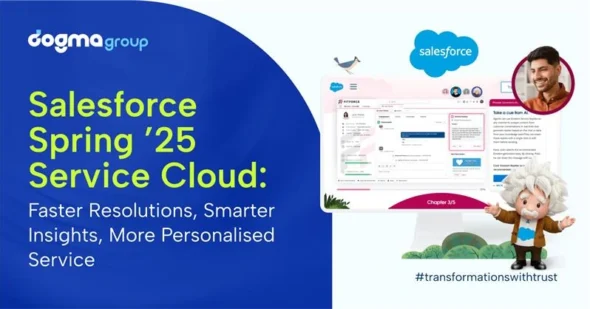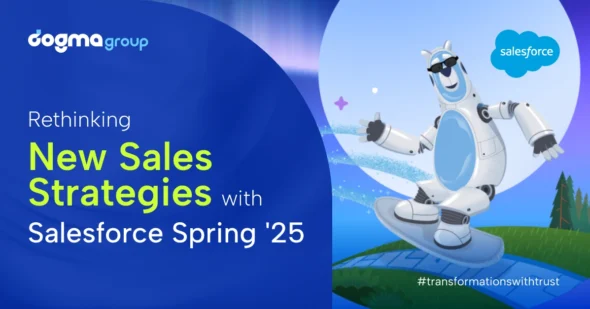As we approach 2025, the Customer Relationship Management (CRM) landscape is set to experience significant growth and transformation. Understanding the emerging data and statistics in this field is crucial for businesses aiming to leverage CRM systems effectively. This analysis outlines the top CRM trends in 2025 and beyond, their implications, and actionable next steps for decision-makers.
CRM Trend #1: Explosive Growth in the CRM Market
The CRM market has consistently outpaced expectations, solidifying its place as the fastest-growing software category. With a staggering compound annual growth rate (CAGR) of 13% from 2023 to 2032, the industry’s revenue is forecasted to surpass $90 billion by 2025. This trajectory reflects not only the rising demand for CRM solutions but also their growing importance as a strategic asset in every organisation’s toolkit.
The ROI That Speaks for Itself
The future of CRM is bright, as evidenced by the increasing ROI. CRM trends indicate that businesses can expect even higher returns on their investments in the coming years. For every dollar invested in CRM technology, businesses achieve an average return of $8.71—a testament to the efficiency and value these systems deliver—according to Nucleus Research. Since 2011, the ROI of CRM has surged from $5.60 to $8.71, highlighting the continuous advancements in technology and the expanding scope of CRM capabilities. This remarkable return makes CRM a no-brainer investment for organisations seeking measurable growth and efficiency.
Boosting Sales and Productivity
CRM platforms don’t just offer impressive ROI; they tangibly impact day-to-day operations:
- 29% increase in sales: By streamlining processes and providing actionable insights, CRM empowers sales teams to close more deals in less time.
- 34% boost in productivity: Automation and centralised data management free up valuable time, enabling teams to focus on building relationships and driving results.
The Salesforce Advantage
Leading the CRM charge, Salesforce demonstrates how a well-implemented platform can redefine success:
- A 26% increase in win rates: Sales teams equipped with Salesforce are better positioned to identify opportunities and close deals.
- A 28% growth in sales revenue: By leveraging its comprehensive features, companies can unlock new revenue streams and achieve ambitious targets.
However, the key to maximising these benefits lies in adoption and effective utilisation. Studies reveal that many employees use only 50% of CRM functionalities, leaving untapped potential on the table. Closing this gap through training, customisation, and user engagement can transform a CRM from a basic tool into a business powerhouse.
The Microsoft Advantage
Microsoft Dynamics 365 CRM suites are also industry leaders, proving that a well-implemented CRM solution can revolutionize business operations.
- A 215% return on investment (ROI) over three years with Dynamics 365 Sales implementation and 15 percent increase in seller efficiency when collaborating with team members.
- A ROI of 324% over three years with Dynamics 365 Customer Insights implementation, including 75% time savings on customer journey development and 25% time savings on customer outreach and reporting.
- A ROI of 315% over three years with Dynamics 365 Customer Service implementation with 40% reduction in average handling time and 20% increase in first call resolution time.
CRM Trend #2: The AI Revolution in CRM: Transforming Customer Relationships and Driving Growth
Top CRM trends indicate that AI is set to revolutionise customer relationship management. By 2025, over 70% of CRM platforms will integrate AI, unlocking unprecedented productivity and growth. The numbers speak for themselves: AI-driven CRMs are projected to contribute $1.1 trillion in GDP growth while reshaping how companies interact with customers.
Boosting Productivity and Efficiency
AI in CRM eliminates inefficiencies, enabling sales teams to focus on what they do best—selling. Currently, sales reps spend only 33% of their time actively selling, but AI tools like automated data entry and intelligent scheduling can reclaim up to two hours per day. This translates into more meaningful customer interactions and higher conversion rates. With 82% of sales reps valuing customer connections above all else, AI lets them prioritise what truly matters.
Enhanced Customer Experience
The integration of AI in customer service is transforming the customer journey. AI chatbots, for example, reduce response times by up to 70%, creating faster resolutions and happier customers. In fact, according to Capterra’s 2024 Customer Service Technology Survey, 68% of companies using AI-enhanced customer service report improved customer satisfaction, compared to only 52% of those without.
The Generative AI Edge
Gartner predicts that by 2025, 80% of customer service organisations will leverage generative AI for tasks like content creation and personalised chatbot interactions. These technologies enhance customer satisfaction, reduce costs, and elevate the customer experience to new heights.
Based on these CRM trends and data, it’s evident: AI isn’t just a tool—it’s a catalyst for growth and innovation. For businesses ready to adopt AI-powered CRM solutions, the rewards are clear: increased productivity, happier customers, and a competitive edge.
CRM Trend #3: Hyper-Personalisation in CRM: The Key to Unmatched Customer Satisfaction
How can businesses truly captivate their customers in today’s digital age? The answer lies in hyper-personalisation, a powerful strategy amplified by AI. It enables companies to deliver deeply tailored experiences, driving engagement, satisfaction, and loyalty. It’s no wonder that 69% of marketing leaders agree AI enhances personalisation, with businesses integrating it into their CRMs reporting a 112% surge in customer satisfaction.
The Power of Personalisation
Brands like Amazon have mastered hyper-personalisation, using AI to recommend products based on browsing behavior and purchase history—a strategy that has significantly boosted conversion rates. For broader industries, personalisation proves just as impactful. For instance, elderly care facilities employing targeted campaigns achieved a 65% improvement in lead conversion rates and a 60% boost in customer satisfaction.
Why Personalisation Matters
The data speaks volumes:
- 94% of companies cite personalisation as vital for success.
- Personalised calls-to-action (CTAs) convert 202% better than generic ones.
Yet, despite these benefits, 72% of businesses struggle to implement effective personalisation due to technological and data challenges. However, the future of customer engagement lies in AI-powered CRMs. By harnessing the power of AI, businesses can transform raw CRM data into personalised experiences that captivate customers and fuel growth.
CRM Trend #4: IoT Meets CRM: Revolutionising Customer Insights and Engagement
The integration of IoT with CRM systems is poised to redefine how businesses connect with their customers. With IoT adoption in CRM expected to grow by 60% by 2025, companies are harnessing real-time data from billions of connected devices to unlock deeper customer insights and elevate engagement strategies.
IoT’s Exponential Growth
The IoT market, valued at $595.73 billion in 2023, is projected to reach an astonishing $4.06 trillion by 2032, driven by a 24.3% CAGR. By 2025, the number of IoT devices is set to surpass 75 billion, according to Statista, providing businesses with an unprecedented volume of data. This device proliferation translates to richer insights, enabling CRM systems to deliver hyper-targeted and proactive customer experiences.
How IoT Transforms CRM
- Enhanced Customer Insights: IoT devices offer real-time data on customer behavior and preferences. For instance, fitness trackers can inform health-focused campaigns, while smart home devices allow businesses to predict and meet customer needs.
- Personalised Customer Engagement: In the automotive industry, IoT-enabled vehicles provide data for personalised maintenance reminders and service offers based on driving habits.
- Improved Customer Satisfaction: Real-time insights ensure faster and more relevant interactions, fostering loyalty and boosting satisfaction.
The Business Impact
IoT-powered CRMs empower companies to tailor interactions, streamline operations, and drive growth. By integrating IoT, businesses not only gain a competitive edge but also deepen relationships with their customers.
CRM Trend #5: Automating Success: How CRM Automation is Revolutionising Customer Engagement
As businesses strive to maximise efficiency and elevate customer experiences, automation within CRM platforms is emerging as a game-changer. By 2025, CRM automation is expected to become essential for improving operational efficiency, reducing manual tasks, and driving strategic initiatives.
Streamlined Workflows and Faster Responses
AI-driven automation transforms workflows by eliminating repetitive tasks and reducing lead response times by 61%. This enables teams to focus on strategic priorities instead of administrative duties. For example, Salesforce’s automation tools empower businesses to automate follow-up emails after a purchase, seamlessly enhancing customer engagement without manual intervention.
Automation is especially critical in sales processes, a study suggests, aiding in:
- Lead nurturing (57%)
- Customer engagement (36%)
- Campaign reporting (28%)
This capability is vital in scenarios like stakeholder turnover in prospect companies—a factor cited as a key reason for lost deals by over 80% of sellers. Unsurprisingly, 61% of sales high-performers use CRM automation to streamline their processes.
The Role of AI Chatbots and Virtual Assistants
AI-powered chatbots are redefining business-to-customer communications:
- 84% of companies consider them essential tools for real-time assistance and customer insights.
- Chatbots reduce data entry tasks, which consume 20% of employee work hours, freeing up time for more impactful activities.
- With 73% of decision-makers adopting chatbot technology, these tools efficiently address routine queries, provide instant answers, and escalate complex cases to human agents.
Moreover, the integration of generative AI takes chatbots to the next level by offering natural, personalised interactions and enhanced customer intent detection.
Voice Assistants: One of the Rising CRM Trends
Voice AI, popularised by products like Alexa, is another frontier in CRM automation. By 2026, Statista reports that the number of voice assistant users is expected to reach 157.1 million, underscoring its potential for transforming how businesses interact with customers.
Additionally, one of the top CRM trends from Gartner suggests that 73% of businesses using AI-powered chatbots report significant value. Unlike traditional chatbots, these AI-driven assistants can understand natural language, personalise responses, and take actions, leading to enhanced customer experiences and operational efficiency.
Why CRM Automation Matters
From personalised follow-ups to proactive customer service, CRM automation boosts productivity, enhances engagement, and ensures that businesses stay ahead of the curve. With 85% of sales reps recognising self-service tools as effective in guiding buyers, the latest CRM trends suggest that automation is no longer optional—it’s indispensable for the UK businesses.

CRM Trend #6: The Rise of Social CRM: Connecting with Customers Where They Are
In an era where social media is the heartbeat of customer interactions, Social CRM is proving essential for businesses looking to build meaningful relationships and boost engagement. By integrating social media into CRM systems, companies are increasing their customer engagement while enhancing visibility, collaboration, and productivity.
Why Social CRM Matters
With 82% of service organisations using social media channels, platforms like Twitter, Instagram, and Facebook have become primary touchpoints for customer interactions. Social CRM bridges the gap between these platforms and business operations, giving teams a unified view of the customer. This integration enables marketing and customer service teams to collaborate seamlessly, ensuring timely and appropriate responses to customer inquiries or complaints.
Boosting Engagement and Productivity
Social CRM tools offer benefits that go beyond engagement:
- Real-Time Monitoring: Brands like Nike use social listening tools to track customer sentiment and respond proactively. This fosters customer loyalty and helps address potential issues before they escalate.
- Enhanced Productivity: Early adopters of social CRM report an 11.8% increase in productivity, particularly among sales teams, according to Nucleus Research. As businesses become more familiar with these tools, adoption and activity levels are expected to rise, unlocking even greater efficiencies.
The Social Media Advantage
Social CRM transforms social media data into actionable insights. By integrating customer feedback, preferences, and behavior into their CRM, businesses can create personalised experiences that resonate with their audience. For instance, if a customer tweets about an issue, the CRM flags it for the appropriate team to address, ensuring a swift and coordinated response.
As social CRM technology matures, its benefits will only grow. By leveraging these tools and understanding the implications of these CRM trends, businesses can foster deeper connections with their audience, improve productivity, and stay ahead in an increasingly digital world.
CRM Trend #7: Low-Code/No-Code CRM: Empowering Innovation Without Complexity
As businesses strive to stay agile and competitive, low-code/no-code (LC/NC) solutions are revolutionising CRM platforms by enabling greater customisation with minimal technical expertise. The latest CRM trends indicate that by 2025, majority of the UK businesses are expected to implement LC/NC tools into their CRM systems, unlocking new levels of efficiency and adaptability.
Why Low-Code/No-Code is Transformative
Traditional application development often demands significant IT resources and time. LC/NC platforms eliminate these bottlenecks, empowering business users—known as “citizen developers”—to create and modify workflows independently. Gartner reported that by 2025, 70% of new applications will use LC/NC technologies, a dramatic rise from less than 25% in 2020. In 2024, Gartner had esitmated that 75% of the large enterprises used at least four low-code/no-code tools for development activities.
The Business Impact
Adopting LC/NC solutions delivers a range of benefits:
- Reduced IT Strain: 84% of enterprises have embraced LC/NC to ease IT workloads, accelerating innovation without overburdening technical teams.
- Improved Customer Service: 85% of businesses report better customer experiences thanks to faster, tailored solutions.
- Faster Speed-to-Market: By enabling non-technical teams to adapt CRMs to specific needs, organisations gain agility and efficiency.
- Enhanced Agility and Innovation: 86% of companies have become more flexible, while 89% use LC/NC to innovate products and services.
Real-World Application
Platforms like Dynamics 365 are leading the charge with intuitive low-code tools, allowing marketing teams to create custom workflows for campaigns without IT intervention. This accelerates response times, fosters creativity, and enhances campaign effectiveness.
The Future of CRM Customisation
Low-code/no-code solutions democratise technology, empowering teams across departments to drive innovation. By adopting LC/NC platforms, businesses can achieve greater agility, meet evolving customer demands, and build tailored CRM solutions that deliver measurable results.
CRM Trend #8: The Power of Mobile CRM: A Game-Changer for Productivity and Engagement
In today’s fast-paced, remote-first world, mobile accessibility in CRM systems is no longer optional—it’s a necessity. By 2025, 75% of CRM users will access their systems through mobile devices, underscoring the importance of mobile-friendly solutions that boost flexibility, responsiveness, and efficiency.
Why Mobile CRM Matters
Mobile CRM transforms how businesses operate, enabling teams to access critical data and customer insights anytime, anywhere. Having CRM apps on mobile devices empowers sales representatives to update lead statuses, review customer interactions, and respond to inquiries on the go. This level of accessibility ensures faster response times and improved customer satisfaction.
Key Benefits of Mobile CRM
- Enhanced Productivity:
- Teams using mobile CRM report a 14.6% productivity increase, thanks to task-specific apps designed for seamless use on smartphones and tablets.
- A Nucleus Research study found that 65% of sales reps using mobile CRM meet their sales quotas, compared to just 22% of those relying on non-mobile solutions.
- Streamlined Communication:
- With 79% of service organisations leveraging messaging apps and 78% using mobile apps for customer service, mobile CRM enables asynchronous communication. Customers and agents can access past conversations, fostering continuity and deeper engagement.
- Cloud-First Future:
- Gartner reports that by 2027, 90% of CRM marketing software spend will focus on cloud-based deployments, ensuring mobile compatibility and seamless data synchronisation across devices.
Driving Sales Success
Sales professionals benefit significantly from mobile CRM by gaining on-the-go access to pipelines, lead updates, and real-time customer insights. Mobile solutions tailored for specific roles and industries allow sales teams to go beyond basic data entry, leveraging CRM as a strategic tool for closing deals.
Why Mobile CRM is Essential
Mobile CRM is no longer just a convenience—it’s a competitive advantage and one of the key CRM trends. With 50% of teams reporting, according to Forrester, productivity gains and the majority of sales quotas being met by mobile CRM users, adopting a mobile-friendly platform is crucial for driving business success.
CRM Trend #9: The Power of Customer Experience: Why Investing in CRM is a Game Changer for Your Business
Customer experience (CX) is no longer a buzzword; it’s a strategic imperative and a critical factor in driving business success. Key CRM trends suggest that a staggering 86% of buyers are willing to pay more for a superior customer experience, with research from PwC showing that the more expensive the item, the higher the willingness to pay. This reveals a clear trend: customers are prioritising value in their experiences, not just the products themselves.
Businesses are now recognising that CX isn’t just a service; it’s a powerful differentiator. In fact, 44.5% of organisations globally see CX as a primary competitive factor. And the impact is evident: 38% of consumers say they are likely to return to a brand after a positive experience. This shift in consumer expectations is prompting businesses to rethink how they interact with customers—focusing not only on the product, but also on how the customer feels throughout their journey.
For companies looking to leverage this opportunity, the driving force behind adopting CRM software is clear. A significant 35% of organisations cite enhancing customer service as their primary motivation for CRM adoption. The payoff is tangible: 49% of CRM users report that one of the biggest benefits is improved customer service quality.
Implementing CRM technology doesn’t just streamline processes—it enables businesses to deliver personalised, efficient, and responsive service. In turn, this leads to higher customer satisfaction, increased loyalty, and ultimately, long-term profitability. For any business looking to stay ahead, investing in CRM is no longer optional—it’s essential.
Implications of These CRM Trends for UK Businesses
The evolving landscape of customer experience presents a unique opportunity for UK businesses. Here’s how organisations can capitalise on these trends:
Tech-Forward Approach:
- AI Integration: Harness the power of AI to automate routine tasks, improve decision-making, and enhance customer interactions.
- IoT Innovation: Leverage IoT to gather valuable customer insights and optimise operations for seamless experiences.
Personalised Experiences:
- Data-Driven Insights: Utilise data analytics to understand customer preferences and tailor offerings accordingly.
- Omnichannel Engagement: Deliver consistent and personalised experiences across all touchpoints, from physical stores to digital channels.
Data Security and Compliance:
- Robust Security Measures: Implement stringent security protocols to protect sensitive customer data from breaches.
- Regulatory Adherence: Stay updated on evolving data privacy regulations like GDPR and CCPA to mitigate risks.
Agility and Innovation:
- Low-Code Development: Empower teams to rapidly build and deploy applications, accelerating time-to-market.
- Agile Methodologies: Adopt agile practices to foster flexibility and adaptability in response to changing market dynamics.
Customer-Centric Culture:
- Employee Training: Invest in training programs to equip employees with the skills to deliver exceptional customer service.
- Customer Feedback Loops: Actively seek and incorporate customer feedback to continuously improve products and services.
Decoding Top CRM Trends and Seizing the Opportunity
In today’s dynamic business landscape, CRM has become a necessity. By understanding these latest CRM trends, businesses can invest stratigically to deliver exceptional customer experiences, streamline operations, and drive significant ROI.
Whether you’re considering your first CRM or looking to get more from your current system, remember this: the technology is only as powerful as the strategy and adoption behind it. The numbers don’t lie—CRM is a game-changer. Are you ready to harness its full potential?






